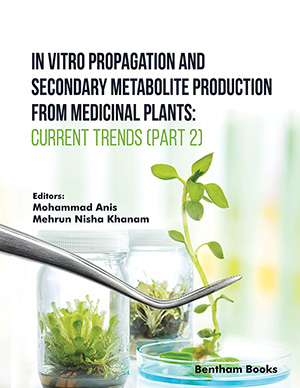Abstract
Background: Prostate cancer is one of the most commonly diagnosed malignancies in the developed world. Despite other risk factors like age, diet, environment and the pathogenesis of prostate cancer, recent advances in molecular genetics suggest that genetic inheritance plays an important role in prostate cancer.
Objective: We attempted to analyze the association of SNPs rs4962416 and rs6465657 in the development of prostate cancer. A better understanding of the association of SNPs in prostate cancer susceptibility may improve risk prediction, improve precision mapping, and provide new insights into the underlying pathophysiology of prostate cancer. To date, no one has investigated these two SNPs in the Iranian populations, and according to the heterogeneity that exists, SNPs in communities should be examined separately.
Methods: This case-control study includes 82 people with prostate adenocarcinoma as cases and 96 people with benign prostatic hyperplasia (BPH) as controls. Genotyping of each participant was done by TETRA ARMS-PCR method and for statistical analysis chi-squared, Fisher’s exact logistic regression was used to find the SNPs associated with prostate cancer.
Result: The frequency of the polymorphisms rs4962416 and rs6465657 in the prostate adenocarcinoma group was evaluated compared to the BPH control group (p-value < 0.05%) to choose the meaningful SNP. For rs4962416, we didn’t find any meaningful association with prostatic cancer (p=0.402) but for rs6465657 there was a significant difference between genotype frequency (p=0.001).
Conclusion: rs6465657 polymorphism which is associated with prostate cancer, can be chosen as a biomarker for this cancer and there should be more investigation on this SNP as these results need to be confirmed in a larger population.
Keywords: Prostate cancer, polymorphism, single nucleotide polymorphisms, prostate-specific antigen, tumorigenesis.
[http://dx.doi.org/10.1186/1471-2318-6-10]
[http://dx.doi.org/10.1093/aje/kwr146] [PMID: 21821540]
[PMID: 17903053]
[http://dx.doi.org/10.1111/j.1442-2042.2006.01729.x] [PMID: 17511722]
[http://dx.doi.org/10.1186/s12881-020-01014-0] [PMID: 32295536]
[http://dx.doi.org/10.3390/cancers11040434] [PMID: 30934773]
[http://dx.doi.org/10.1038/s41388-019-0880-9] [PMID: 31312023]
[PMID: 30362312]
[http://dx.doi.org/10.1002/mc.21954] [PMID: 22911926]
[PMID: 25937777]
[http://dx.doi.org/10.29252/ajcm.26.1.12]
[http://dx.doi.org/10.1158/1055-9965.EPI-16-1046] [PMID: 29348298]
[http://dx.doi.org/10.1038/s41467-018-06863-1] [PMID: 30397198]
[PMID: 34017579]
[http://dx.doi.org/10.1038/aja.2008.18] [PMID: 19050691]
[http://dx.doi.org/10.1093/carcin/bgr316] [PMID: 22219177]
[http://dx.doi.org/10.1038/emboj.2013.99] [PMID: 23644382]
[http://dx.doi.org/10.1016/j.cell.2009.04.056] [PMID: 19632176]
[http://dx.doi.org/10.1200/JCO.2011.35.2005] [PMID: 21859989]
[PMID: 17269621]
[PMID: 19640184]
[http://dx.doi.org/10.1016/j.ajur.2020.03.001] [PMID: 33996474]
[http://dx.doi.org/10.7314/APJCP.2016.17.2.839] [PMID: 26925689]
[http://dx.doi.org/10.1186/1471-2407-10-315] [PMID: 20569440]
[http://dx.doi.org/10.1038/s41388-020-1280-x] [PMID: 32300177]
[http://dx.doi.org/10.1080/21681805.2020.1782979] [PMID: 32608296]
[http://dx.doi.org/10.1172/JCI131041] [PMID: 32091413]
[http://dx.doi.org/10.31557/APJCP.2020.21.2.505] [PMID: 32102531]
[http://dx.doi.org/10.18632/aging.103921] [PMID: 33197890]
[http://dx.doi.org/10.18632/oncotarget.3899] [PMID: 26008968]
[http://dx.doi.org/10.1016/j.eururo.2013.12.058] [PMID: 24411283]
[http://dx.doi.org/10.1038/ng.90] [PMID: 18264097]
[http://dx.doi.org/10.1038/ng.91] [PMID: 18264096]
[http://dx.doi.org/10.1158/0008-5472.CAN-14-1030] [PMID: 25228652]
[http://dx.doi.org/10.3390/genes10070547] [PMID: 31323811]































